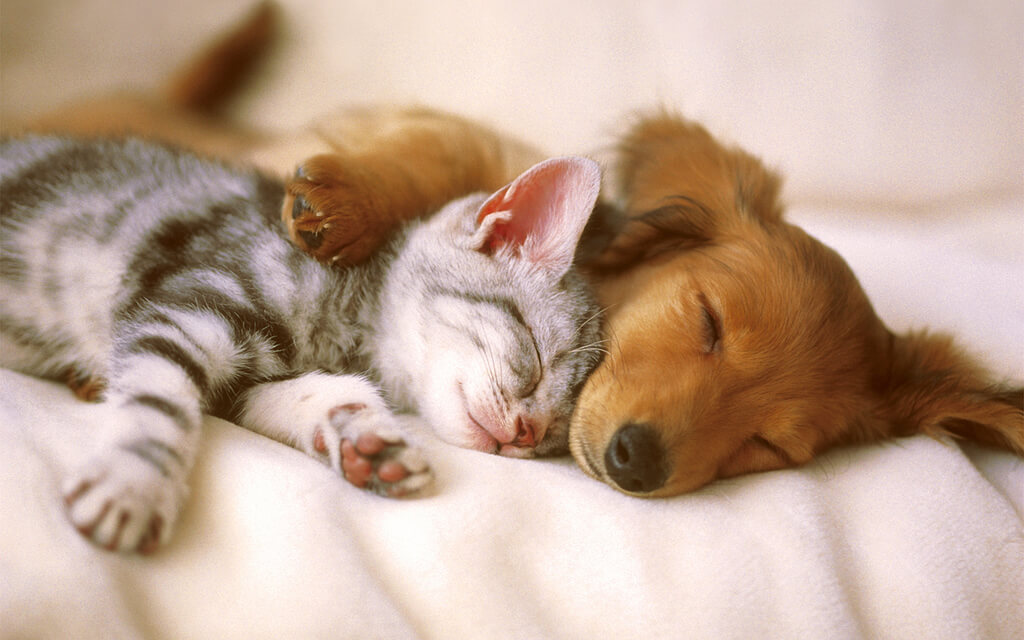-
When it comes to choosing a pet dog, there are a lot of things to consider. How much living space you have, whether you have children, how active you like to be, how much time you have to spend with a dog, and whether you have other pets will all factor into your decision. And of course, we all have different tastes and preferences. Some people love small, fluffy dogs that can curl up in your lap. For others, a big, energetic Labrador is the ideal pet.
Dog breed groups
Whatever your family lifestyle is like, there is a dog breed that will be perfect for you – provided, of course, that you are prepared to put in the time and effort to give them proper love, care and attention.
To help narrow down your choices, we can group dog breeds into a few different types. Here are some of the key characteristics of different breed groups…
Toy dogs
These small dogs were bred to be companion animals so they make great pets – some toy breeds were the lapdogs of European royalty. Because of their size, they’re a particularly good choice for city-dwellers and people without much living space. Loyal and expressive, toys are generally good-natured and companionable and like being part of the family – and they love attention. They are great at learning tricks and many excel in obedience competitions. Because of all these factors, they are generally quite low maintenance and are often considered the best dogs for new owners. However, a few things to note are that some breeds have a tendency towards yappiness, some may need a good deal of grooming, and their fragility can make them less ideal pets for families with small children.
Popular toy breeds: Cavalier King Charles Spaniel, Pug, Yorkshire Terrier, Chihuahua, Shi Tzu, Maltese, Pomeranian, Miniature Pinscher, Toy Poodle
Terriers
Fiesty, active and full of boundless energy, terriers were bred to keep the home and farm free from vermin. Their natural instincts are to dig and hunt, so they need a job to do – which you can provide through lots of exercise and play – to stop them from getting restless. Terriers range in size from fairly small, like the companionable West Highland White Terrier, to large like the Airedale Terrier, which can be a surprisingly ferocious watchdog. Lively, cheerful and intelligent, terriers make engaging pets, but you do need to be able to keep up with their boisterous energy. They also tend to have little tolerance for other animals, including dogs, and most terriers have wiry coats that will require special grooming.
Popular terrier breeds: Jack Russell Terrier, West Highland White Terrier, Staffordshire Bull Terrier, Border Terrier, Fox Terrier, Scottish Terrier
Gundogs
These dogs were bred to work in the field and make excellent family pets. Cheerful, active and easy to train, dogs in the gundog family have long worked alongside people, so they are affectionate and loyal. They need lots of exercise to keep them busy, and they tend to have gentle natures and are good with children. For this reason, along with their intelligence and obedience, Labradors and Golden Retrievers are often considered the best all-round dogs
Popular gundog breeds: Labrador Retriever, Golden Retriever, Cocker Spaniel, English Springer Spaniel, Weimaraner, English Setter
Hounds
These are the original hunting dogs, with the common anscestral gifts of powerful scent, rapid speed and great stamina. Bold, active and independent, these dogs love chasing a scent and often make fun and reliable pets. Hounds are sometimes thought to be aloof – while easygoing and good natured, they were bred to hunt at a distance from humans so they generally don’t show affection as much as some other dogs. Whippets are often gentle and affectionate though and love the company of humans, and basset hounds are another friendly breed.
Popular hound breeds: Beagle, Whippet, Basset Hound, Dachshund, Greyhound
Working dogs
These are large, powerful dogs, bred to work alongside farmers and act as guardians of livestock and property. Highly intelligent and very loyal, these energetic dogs make solid companions, and many have strong protective instincts that make them excellent guard dogs. When they are well-trained and well-treated they can make great family dogs – Rottweilers and Dobermans, for example, fit nicely into family life. Because of their size, strength and personality, however, working dogs can sometimes be difficult to control and proper training is essential. For this reason, they are often not recommended for novice dog owners. The other important thing to remember is that working dogs have large exercise requirements.
Popular working breeds: Boxer, Doberman, Rottweiler, Siberian Husky, Border Collie, Australian Kelpie, German Shepherd
Non-sporting dogs
This diverse group of dogs includes all breeds that don’t fit into other categories. As you’d imagine, it’s a pretty mixed bunch! From the fluffy Bichon Frise to the handsome Dalmatian to the Lhasa Apso, these dogs come in a huge range of sizes, appearances and personalities. One of the most popular non-sporting breeds is the Poodle – a grand-looking, highly intelligent and surprisingly playful dog that makes a loyal family pet. In contrast, the Bulldog is another common non-sporting pet, which despite its strong, stocky and determined appearance is gentle, affectionate and good with children.
Popular non-sporting breeds: Bulldog, Poodle, Boston Terrier, Dalmatian, Chow Chow, Bichon Frise, Shar Pei
Your pet makes your life better – so give them the best care with Medibank Pet Insurance.
Choosing a pet dog


Looking for Pet Insurance?
They bring out your best. Help protect them with Medibank Pet Insurance.
Three updated cover levels now available!ꭥ Plus, health members save 10% on premiums.# T&Cs apply.
Things you should know
Medibank Pet Insurance policies entered into for the first time prior to 30 August 2023 and subsequent renewals of those policies are issued by The Hollard Insurance Company Pty Ltd ABN 78 090 584 473, AFSL 241436, arranged and administered by PetSure (Australia) Pty Ltd ABN 95 075 949 923, AFSL 420183 (PetSure) and promoted and distributed by PetSure’s Authorised Representative (AR) Medibank Private Limited ABN 47 080 890 259, AR 286089 (Medibank).
Medibank Pet Insurance policies entered into for the first time on or after 30 August 2023, and subsequent renewals of those policies are issued by PetSure and promoted and distributed by PetSure’s AR, Medibank.
Any advice provided is general only and does not take into account your individual objectives, financial situation or needs. Please consider the Product Disclosure Statement (PDS) ensure this product meets your needs before purchasing, or choosing to continue with the product. PDS and Target Market Determination available at medibank.com.au/pet-insurance.



.jpg)


